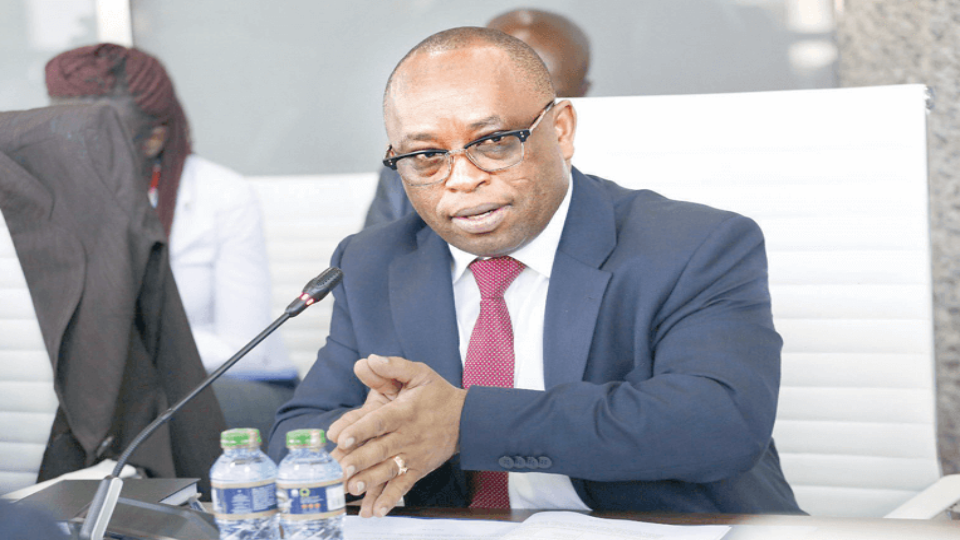Kenya Suspends All Tenders and Contract Awards Until e-GP System Launch
The Kenyan government has announced a temporary suspension of all new tenders and contract awards for the Financial Year 2025/2026, effective immediately, pending the full rollout of the Electronic Government Procurement (e-GP) system. The directive, issued by the Public Procurement Regulatory Authority (PPRA), aims to enhance transparency, efficiency, and accountability in public procurement processes through a fully digital platform.
The PPRA, tasked with overseeing public procurement in Kenya, has instructed all procuring entities to halt the initiation of procurement processes through framework agreements and refrain from issuing awards or entering into contracts until the e-GP system is operational. This decision was communicated by PPRA Director General Patrick Wanjuki, who emphasized the need for a seamless transition to the new digital system.
"All procuring entities are to cease initiation of procurement processes for Financial Year 2025/2026 until after the rollout of the e-GP system," Wanjuki stated. The suspension applies to all public sector organizations across national and county governments, marking a significant shift in Kenya's procurement landscape.
The e-GP system is designed to digitize and streamline the entire procurement process, from tender advertisement to contract management. By moving away from manual and paper-based systems, the government aims to reduce inefficiencies, curb corruption, and ensure fair competition among suppliers. The platform is expected to provide real-time tracking of procurement activities, enabling better oversight and accountability.
The initiative aligns with Kenya's broader digital transformation agenda, which seeks to modernize public services and improve governance. The e-GP system will allow suppliers to access tender opportunities online, submit bids electronically, and track the status of their applications. For government entities, the system promises faster processing times and enhanced compliance with procurement regulations.
The suspension of tenders comes as part of ongoing efforts to address long-standing challenges in Kenya's public procurement system. Reports have highlighted issues such as mismanagement, lack of transparency, and favoritism in contract awards. The Auditor-General's reports have previously flagged significant financial losses due to non-compliance with procurement laws, with billions of shillings lost annually to inefficiencies and corruption.
The introduction of the e-GP system is seen as a critical step to address these issues. By centralizing and digitizing procurement processes, the government aims to close loopholes that have allowed for underhand dealings and ensure that public funds are utilized effectively. The system is also expected to align with international best practices, making Kenya's procurement framework more competitive and attractive to both local and foreign investors.
The suspension of tenders has significant implications for businesses, particularly small and medium enterprises (SMEs) that rely on government contracts for revenue. The directive may cause delays in project implementation and affect cash flow for suppliers who were anticipating new contracts at the start of the financial year. However, the PPRA has assured stakeholders that the suspension is temporary and that the e-GP system will ultimately benefit all parties by creating a level playing field.
For government agencies, the suspension means a pause in initiating new projects until the digital platform is fully operational. This could impact sectors such as infrastructure, healthcare, and education, where timely procurement is critical. The PPRA has urged procuring entities to prepare for the transition by training staff and ensuring compliance with the new system’s requirements.
While the exact launch date for the e-GP system has been set for July 1, 2025, the PPRA has not specified how long the suspension of tenders will last post-launch. The authority is expected to provide further guidance on the rollout process, including training programs for procuring entities and suppliers. The government has also committed to engaging stakeholders to ensure a smooth transition and address any concerns arising from the suspension.
The PPRA has encouraged suppliers to register on the e-GP platform, which will be accessible via the official government procurement portal. The authority has also promised to provide regular updates on the system’s implementation progress to keep stakeholders informed.
The move to suspend tenders until the e-GP system is fully implemented reflects the government’s commitment to reforming public procurement. Analysts see this as a bold step toward enhancing accountability and reducing the risks associated with manual procurement processes. However, the success of the initiative will depend on the government’s ability to execute the rollout effectively and ensure that the system is user-friendly and accessible to all stakeholders.
The suspension also comes at a time when Kenya is grappling with economic challenges, including a heavy debt burden and rising inflation. Efficient public procurement is critical to ensuring that limited resources are allocated effectively to priority areas such as infrastructure development, healthcare, and education.
The Kenyan government’s decision to suspend all tenders and contract awards until the launch of the e-GP system marks a pivotal moment in the country’s efforts to modernize public procurement. While the move may cause short-term disruptions, the long-term benefits of a transparent, efficient, and digital procurement system are expected to outweigh the challenges. As the July 1, 2025, launch date approaches, all eyes will be on the PPRA and the government to deliver on their promise of a fairer and more accountable procurement process.


